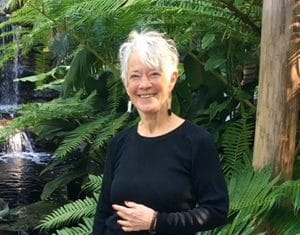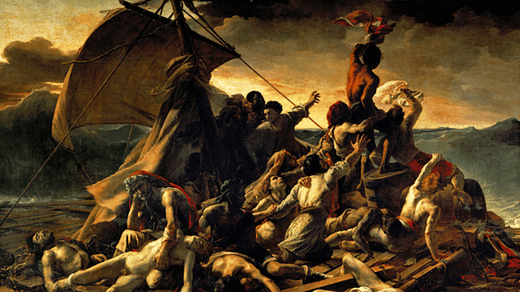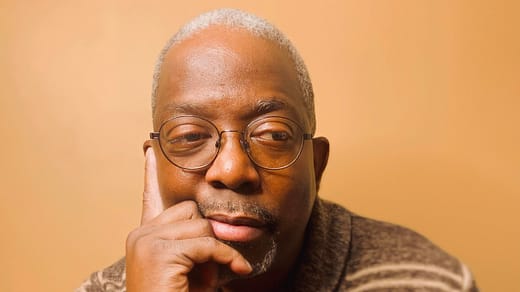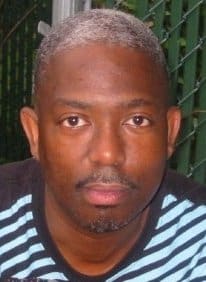Note: I met GG in a playwright’s group a little over two years ago. I remember being the only person of color in our small group that met every Tuesday evening. I also remember GG’s writing. Gee Gee is a passionate storyteller and I hung on to every word that came from her readings. We were seemingly so different. But it’s her writing that speaks to my heart and humanity. When I asked her to contribute to Art/Life, she opened her heart and wrote.
Who are you?
Hi, I’m GG Hart, short for Georgiana Hart. I do many things in this life. We, my parents and I, moved to many places because of discrimination. My dad had one arm, and no one would hire him. It was cut off by a tractor when he was 12, and all he could remember was having to walk home alone from the hospital, thinking, “now no one will choose me for their baseball team.” Then my mother died when I was six, in childbirth. And yet I was fortunate.
My father was loving and supporting. I remember his being encouraging of my reading in the first grade. Then, he had a decision to make when my mother died: would I live with the aunt who was my father’s eldest sister whose children resented her, or hire a couple to live in the house while he worked and stayed in Chicago, usually with his sister. And so I was raised by two couples: Jamie and Dean–she a stout, cheerful woman, and he a railroad engineer. He came home covered in soot from his job shoveling coal. He would wash his hands before dinner but while we ate, we saw only the whites of his eyes. Another couple, Katie and Chuck, were more “middle class”, he was a collector of electric trains. There was always one set up on our back porch,
During this time, and until my father remarried 4 years later I wondered why my childhood friends seemed to shun me. My “step” mother offered an explanation years later: “You were the only child for blocks around with no parents. You were too different.”
I learned to make friends with girls on the “wrong side” of busy Lake Street (Route 20) They were more interesting than the studious children, especially later in High School, perhaps because they were also raised in single parent homes. They had another view of the world than the girls with more money.
One girl, Marilyn, only knew lettuce and tomato sandwiches without the bacon, because her father drank a case of quarts of beer every night. Another friend, Mary Lou, ate with her father Kraft Macaroni and cheese one night and Campbell’s Chicken Noodle Soup the other. In contrast to the “white shoe” kids, we chose not to have sex with our boyfriends, whereas that was a common practice of the girls whose parents had more money, went to shows in Chicago, and left the houses without chaperones to party into the wee hours.
I preferred my friend’s company to those teenagers in my town who took books home every night. I would cram diligently before exams, do homework during study time in school. Then, I wouldn’t have to carry books home during a two-mile walk from school, where my friends drank coca-cola in a greasy spoon called “The Cloverleaf”. One friend’s mother joined us sometimes. She was another “single parent”. I respected these friends because they were proud of having very little except themselves. They respected me because I was a “brain”. I remarked to the friend I walked home with from school that I thought that perhaps there was an “unseen force in the universe” that connected the dots in our lives. She told me later that I scared the shit out of her.
How did Art show up in your life?
My first taste of art was when I wrote an English essay about what school was really like—waiting for buses in the cold, being served lunches in a cafeteria where some could not afford 35 cents, seeing two black families blocked from living in Elmhurst, Illinois, where still no blacks live. My friends loved the essay. I got a C minus, my first bad grade. I realized that writing about something real would not get me ahead. I decided then to keep writing.
I didn’t do well in college. Maybe because my brain went in different directions from writing and politics. I dropped out of college, went to night school, worked as a secretary, and moved to San Francisco. After a year and a half there, a boyfriend and I decided to live in Spain. He to continue studying Flamenco guitar, I to read and write. A few years later I met a man in Spain who would be going to NYU for his medical degree. My grades had been good in science, so I decided to go back to school for pre-med and reunited with him back in the States. There, after living at home and working for a year, I applied to college at Rutgers decided to follow a childhood dream to become a psychiatrist.
I had always wondered why my mother’s death left questions, why writing about working class people inspired me and why racist ideas prevailed. I went back to school so I could get a job where I could talk with people about their problems. And it was at school reading about the Vietnam war that I found out about communism.
There, over my dinner table alone in Newark, making the two most important decisions of my life: to join the Progressive Labor Party to be part of the necessary organized effort to deal with a ruthless system; to refuse admission to medical school.
I asked myself why I wanted to become a doctor. I realized it was to put a
Title before my name so that the world would know that this woman wasn’t stupid. I wanted status. I realized profoundly that was the wrong reason to go to medical school.
What do you do?
I had many jobs as a communist, becoming fired mostly because of my politics. I worked as a teacher, a phone answerer at Con Edison, and as a psychiatric technician. While teaching I learned how insufficient textbooks, windows boarded up with wood, and transfers of us teachers were part of a conscious effort to prevent children from learning. The union at Con Ed–AFof L, was crookedly elected over the CIO by Con Ed rulings. Our shop steward came to work drunk.
While working as a psychiatric technician at St. Vincent’s Hospital in NY,
I realized that not only did I love working with folks with emotional problems but that I wanted to combine that with a love of science. I went to nursing school.
At the Pace Graduate School of Nursing, we all encountered harassment and biased grading systems. Our graduating class put on a play entitled “Dorothy in the Land of Family Nurse Practitioners and her Quest for the Ruby Stethoscope.” We revealed the intimidating evaluations, the biased thesis advisors and the fictional histories we had composed when none of the neighborhood guinea pig families would cooperate with us nosey student nurses. My role as one of the evil flying monkeys was to cast lightning bolts printed with thesis comments throwing them at Dorothy asleep in the poppy fields of mindless writing.
Art is…
My last full-time job was as a school nurse in Newark, NJ, and when they began to phase out school nurses, I got an advanced degree in nursing. I continued to write about the history of people escaping slavery, people who formed a commune in Paris, and four young men who got shot on the New Jersey turnpike who fought their bad fortune.
Art is making sense of reality and giving humanity to an inhuman, racist system.
Art is breath and, yes, beauty.





Recent Comments